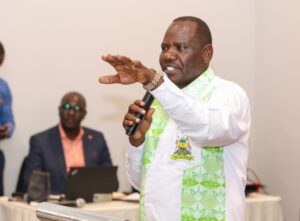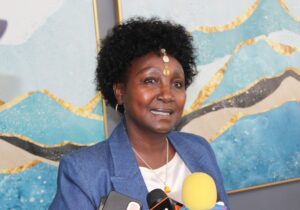11 Winners Recognised at Zayed Sustainability Prize Awards Ceremony held during COP28 UAE

ABU DHABI, United Arab Emirates — His Highness Sheikh Mohamed bin Zayed Al
Nahyan, President of the UAE, today awarded the winners of the Zayed Sustainability Prize, the UAE’s
pioneering global award in l sustainability and humanitarianism, during a ceremony held at COP28 UAE in
Expo City Dubai.
The Ceremony was attended by numerous heads of delegations participating in COP28, ministers, senior
government officials, and Prize winners and finalists.
His Highness congratulated the winners, praising their efforts in promoting sustainability and encouraging
them to continue their important contributions in this field. His Highness emphasised that the UAE is
steadfast in building upon its established legacy in sustainability, a foundation laid by the country’s
Founding Father, the late Sheikh Zayed bin Sultan Al Nahyan. In this regard, His Highness highlighted the
significant role of the Zayed Sustainability Prize in advancing sustainable development, serving humanity,
and empowering innovators, entrepreneurs, and youth to actively contribute towards making a positive
difference for our planet.

( Hamad Al Kaabi / UAE Presidential Court )
—
The Prize honours the legacy of UAE’s founding father Sheikh Zayed bin Sultan Al Nahyan, by rewarding
small and medium enterprises, nonprofit organisations, and high schools that are addressing health, food,
energy, water and climate-related challenges. For over 15 years, through its 106 previous winners, the
Prize has transformed the lives of 384 million people worldwide.
The Prize’s eleven winners for the current cycle were elected in September by a distinguished panel of
Jury members, who rigorously evaluated each submission for its contribution and commitment to
delivering impactful, innovative, and inspiring solutions across the six categories of Health, Food, Energy,
Water, Climate Action and Global High Schools.
To strengthen its commitment to promoting sustainable and humanitarian development, the Zayed
Sustainability Prize will be increasing its endowment, from US $3.6M to US $5.9M, effective immediately.
H.E. Dr. Sultan Ahmed Al Jaber, UAE Minister of Industry and Advanced Technology, Director General of
the Zayed Sustainability Prize, and COP28 President, said: “Today, the UAE reaffirms its dedication to
combat climate change and empower vulnerable communities as we award US $1 million to each of our
distinguished winners in Health, Food, Water, Energy and Climate Action, and US $150,000 to each
Global High Schools winner. This substantial funding will help scale their innovative solutions and deliver
transformational progress around the world, especially across the Global South.”

( Hamad Al Kaabi / UAE Presidential Court )
—
“As the Zayed Sustainability Prize’s 15th anniversary draws to a close, we reflect on the UAE’s mission to
drive inclusive sustainable development and climate action. The Prize not only honours Sheikh Zayed’s
legacy of social good but extends the reach of his vision on a global scale.”
With a larger fund, the Prize can broaden its support for innovative solutions that not only positively
impact the environment but also improve the well-being and economic development of the world’s most climate-vulnerable communities.
In the new Climate Action category, Kelp Blue, a Namibian SME, won the Prize for its ambitious efforts to cultivate large-scale kelp forests in deep waters, contributing to the restoration of ocean biodiversity while capturing 100,000 tonnes of CO2 from the atmosphere annually. Additionally, their operations have generated job opportunities in coastal communities.
In the Health category, Indonesia’s doctorSHARE was awarded the Prize for its pioneering work in bringing
healthcare access to hard-to-reach areas, notably with barge-mounted floating hospitals. Their impact is
substantial, having treated over 160,000 patients.
In the Food category, Gaza Urban & Peri-urban Agricultural Platform (GUPAP) from Palestine, won for its contributions to supporting a more resilient agricultural sector in Gaza. The NPO facilitates access to locally produced food, providing job security to 200 women agriprenuers and benefitting more than 7,000 people.
In the Energy category, Ignite Power, an SME from Rwanda, was awarded the Prize for its transformative efforts to provide affordable electricity to last-mile communities across Sub-Saharan Africa. Their pay-asyou-go solar solutions provided electricity to 2.5 million people and prevented 600,000 tonnes of CO2 emissions. Beyond access to clean energy, Ignite Power has introduced solar powered irrigation solutions and generated 3,500 local jobs.
In the Water category, Eau et Vie, an NPO from France, won for its contributions to ensuring access to
clean water in impoverished areas by installing taps in urban homes. They have increased water access
for 52,000 people in 27 communities across 10 cities. Furthermore, they raised awareness of hygienic
practices for 66,000 individuals and reduced the cost of water by 75%.
The Chair of the Jury and former President of the Republic of Iceland, Ólafur Ragnar Grímsson, said:
“This year’s winners have demonstrated a remarkable wave of ingenuity in their solutions to address urgent global challenges. We have confidence that these winners will catalyse substantial and scalable change in communities worldwide, propelling us towards vital climate action objectives and forging a
path to a sustainable future for all.”
The Zayed Sustainability Prize also engages young people through its Global High Schools category and encourages youth to take an active role in supporting their communities andbecoming future sustainability leaders. The Prize’s 47 Global High Schools winners have impacted the lives of over 55,186
students and 453,887 people in their wider communities.
The recipients of the Global High Schools awards are Colegio De Alto Rendimiento De La Libertad (Peru),
representing The Americas; Gwani Ibrahim Dan Hajja Academy (Nigeria), representing Sub-Saharan Africa;
International School (Morocco), representing the Middle East & North Africa; Northfleet Technology
College (United Kingdom), representing Europe & Central Asia; KORT Education Complex (Pakistan), representing South Asia; and finally, Beijing High School No. 35 (China), representing East Asia & Pacific.




